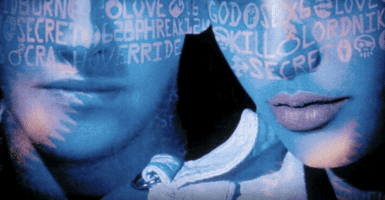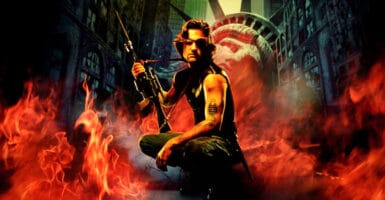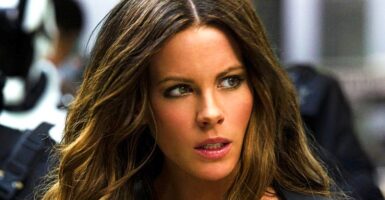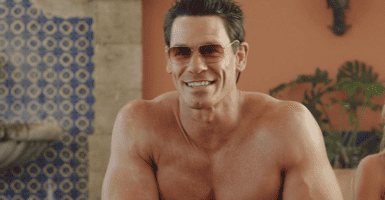The Ryan Gosling Financial Thriller On Netflix Based On A True Story
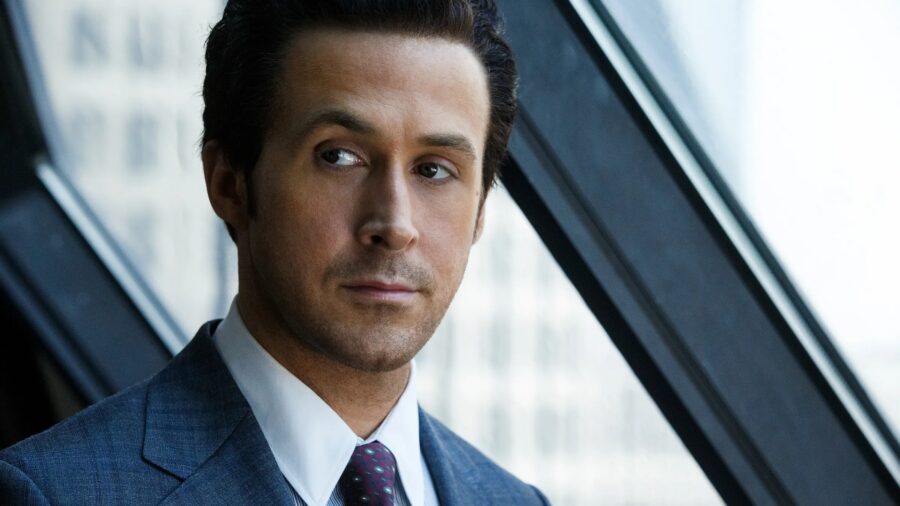
If you’re seeking an unexpected yet strangely successful blend of dark comedy, character exploration, and detective elements, look no further than The Big Short. This 2015 film, adapted from Michael Lewis’ book The Big Short: Inside the Doomsday Machine, is currently streaming on Netflix. It adeptly portrays the 2007-2008 financial crisis and its impact on human lives.
The Big Short tells the real story of the catastrophic 2008 financial crisis, and it’s streaming now on Netflix.
The Big Short follows three intertwined tales. In the first, Michael Burry (Christian Bale), an unorthodox ex-physician turned Scion Capital hedge fund manager, abandons tradition with his attire and hairstyle, staunchly believing in an imminent burst of the American housing bubble. Autonomously, he challenges the housing market by making audacious bets against it, despite banks viewing him as eccentric, yet seizing the unprecedented chance for profit.
Within The Big Short, another narrative revolves around Jared Vennett (Ryan Gosling) of Deutsche Bank, who stumbles upon Burry’s bold moves and envisions a chance for personal gain by capitalizing on the impending catastrophe. His path crossed with Mark Braum (Steve Carell), an impassioned idealist wrestling with the unethical undercurrents of the financial world. Despite reservations, Baum’s team, affiliated with Morgan Stanley, cautiously unites with Vennett, united by the goal of uncovering the industry’s dubious practices, as they share the belief that bond agencies have inflated the value of mortgages, while banks bundle high-risk sub-prime loans into deceptive AAA packages.
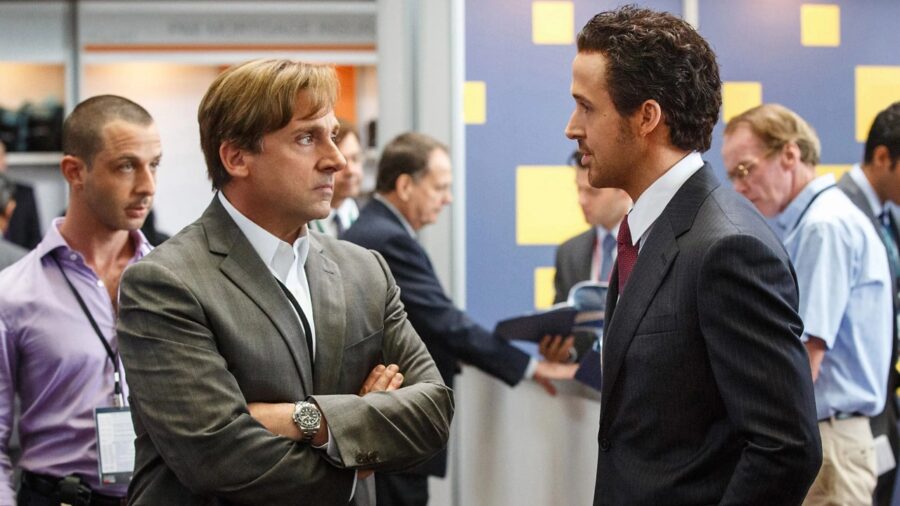
Meanwhile, in the third storyline of The Big Short, we’re introduced to Charlie Geller (John Magaro) and Jamie Shipley (Finn Wittrock), newcomers in the startup world with their venture Brownfield, who stumble upon Vennett’s intricate strategy unexpectedly. Despite their eagerness to partake in the approaching turmoil, their lack of influence prompts them to seek guidance from retired investment banker Ben Rickert (Brad Pitt). Each group operates under the assumption that banks remain oblivious, attaching their own success to the potential downfall of the economy—a perspective that burdens Baum with a moral dilemma; however, these assumptions might prove to be more intricate and manipulative than initially envisioned, introducing unforeseen complications into the already turbulent equation.
The film is adapted from Michael Lewis’s 2010 non-fiction book The Big Short: Inside the Doomsday Machine, which itself serves as an enlightening deep dive into the financial catastrophe.
The casting of The Big Short is nothing short of spectacular, boasting a handful of award-winning actors. Ryan Gosling shines as Jared Vennett, while Christian Bale delivers a compelling portrayal of the eccentric Dr. Michael Burry. Other notable performances come from Steve Carell, playing the morally conflicted Mark Baum, and Brad Pitt as the reclusive Ben Rickert, both of whom navigate the murky waters of Wall Street’s deception.
Adam McKay is the mastermind behind the cinematic rendition of The Big Short, previously known for his comedic ventures such as Anchorman and Step Brothers. The script, co-written by McKay and Charles Randolph, brilliantly balances the intricate financial jargon with comedic elements, making the story accessible and engaging for a wider audience. The film is adapted from Michael Lewis’s 2010 non-fiction book The Big Short: Inside the Doomsday Machine, which itself serves as an enlightening deep dive into the financial catastrophe.
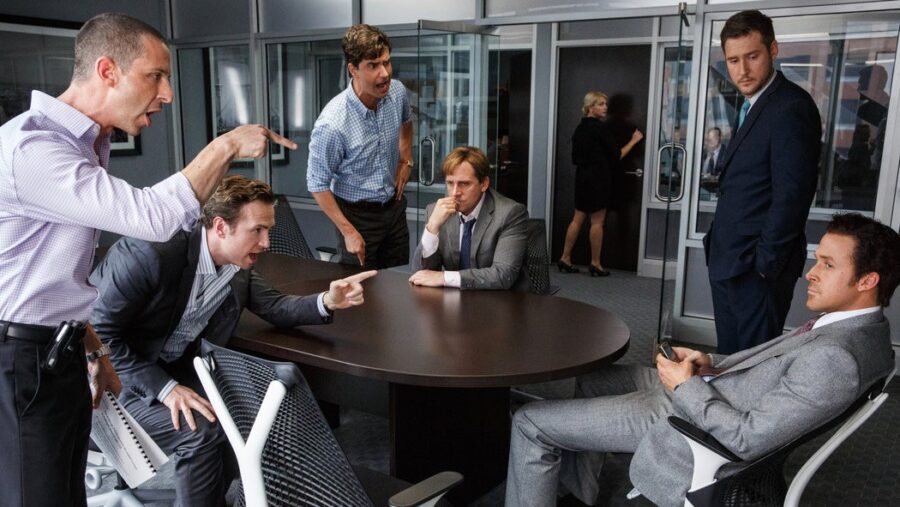
The production of The Big Short was a meticulous endeavor, as it aimed to replicate Wall Street’s fast-paced, high-stakes environment. Shot in multiple locations, including New Orleans and New York City, the film captured the essence of the financial world through its realistic sets and dynamic cinematography. The authenticity of the story was further enhanced by a soundtrack that perfectly reflected the roller-coaster of emotions experienced by its characters.
Bolstered by its charismatic leads, including Ryan Gosling and Christian Bale, The Big Short earned $133 million at the box office.
The Big Short was met with widespread acclaim for its unique storytelling style, educational yet entertaining approach to complex topics, and stellar performances. Critics on Rotten Tomatoes gave the film an impressive score of 89 percent. Meanwhile, general viewers awarded it a commendable 88 percent.
Financially, The Big Short proved its mettle at the box office. Despite its heavy subject matter, the film managed to gross over $133 million worldwide against a $28 million budget. This commercial triumph reflected the audience’s desire for substantive content. Moreover, it highlighted the film’s skill in making intricate subjects both accessible and captivating.
The Big Short masterfully intertwines the complexities of finance with riveting storytelling, providing a deep insight into the 2008 financial crisis. Highlighting the human side of Wall Street through its stellar cast and production, the film underscores the repercussions of unchecked greed. Now streaming on Netflix, it remains essential viewing, prompting audiences to contemplate their place in broader systems.









